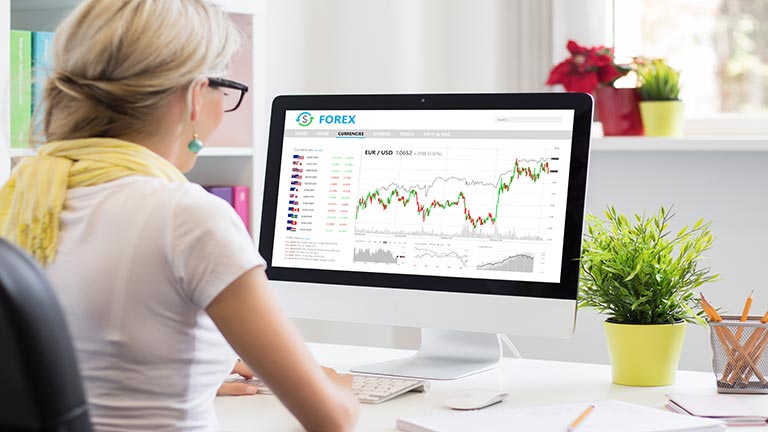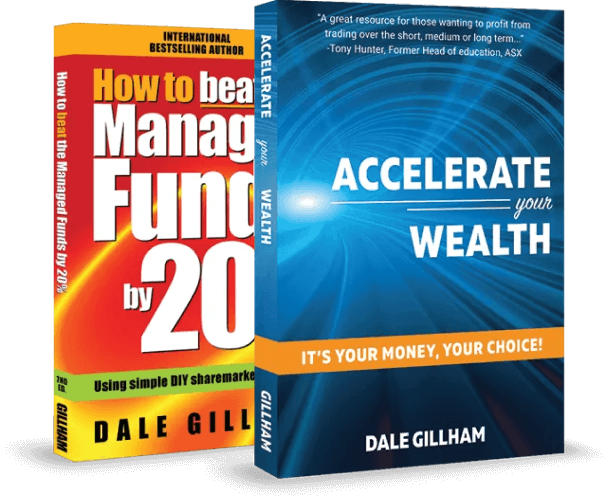Will Artificial Intelligence Improve Your Trading?

By Dale Gillham
Right now, the world is fascinated with artificial intelligence (AI) and the potential impact it will have on people’s lives including the ability for AI to trade the stock market. But will this really become a reality?
Can you really rely on Artificial Intelligence?
Before we answer that let’s take a moment to understand what AI means in the context of trading. AI is a machine’s ability to perform the cognitive functions we associate with human minds, such as reasoning and learning. In the context of the stock market, this means AI could recognise patterns in market data to identify where a stock may unfold in the future based on historical information.
Trading the stock market isn’t complex and with the right education anyone can learn to recognise trends that will allow them to maximise their profits and minimise risk. This is where AI has a big advantage over humans, as it has the ability to process huge amounts of data very quickly to identify patterns that could provide the signals to buy or sell a stock. But does a trader need to analyse huge amounts of data in order to be successful. In my opinion, the answer is a resounding no, which is contrary to what most people will think.
While AI has made significant strides in the financial world with hedge funds, among others, using AI algorithms to identify trading opportunities, these are large institutions rather than private traders where the rules of the game are very different. As we know, the stock market is inherently volatile and at times unpredictable. Given this, relying on AI can provide traders with a false sense of security leading them to make poor money management decisions and taking on higher risks.
Don’t get me wrong, AI is likely to be able to assist humans but it’s not a substitute, particularly when the stock market is an emotional barometer of human activity. The success of anyone trading the stock market comes down to taking a balanced approach that combines aspects of AI with human knowledge, skill and experience. We were all born with a supercomputer on our shoulders and the more we learn and practice, the better we get at something and trading is no different.
In recent times, there has been an increase in advertising that suggests AI trading is the answer to creating riches in the stock market. My recommendation is to be very cautious with these claims because like anything new that has come before, there are many companies who simply want to take your hard earned money and not deliver.
What are the best and worst performing sectors last week?
The best performing sectors included Energy up 3.43 per cent followed by Information Technology up 2.96 and Communication Services up 2.91 per cent. The worst performing sectors included Healthcare up 0.52 per cent followed by Consumer Staples up 0.56 per cent and Utilities up 0.82 per cent.
The best performing stocks in the ASX top 100 included Wisetech Global up 7.58 per cent followed by REA Group up 7.39 per cent and IDP Education up 7.13 per cent. The worst performing stocks included Downer EDI down 5.01 per cent followed by Allkem down 4.70 per cent and Fortescue Metals down 3.82 per cent.
What's next for the Australian stock market?
The Australian stock market never ceases to amaze me given that two weeks ago it looked as if it might resume its fall to around 7,000 points, but last week the story was vastly different. In three of the five trading days, the market was quite bullish trending up around 2 per cent before closing the week up 1.19 per cent. More importantly, the All Ordinaires Index was trading up around highs not seen since mid-February of this year and is above the resistance level at 7,600 points. So, where will the market head from here? If we are to rely on what has unfolded in recent times where anything can happen, it is possible that the market could move in either direction, particularly with reporting season just around the corner. As such, I will continue to caution investors to manage their risk. This means being selective with your stocks, buy quality over penny dreadfuls and always have an exit strategy.
Over the next two to four weeks, the market is likely to be bullish and may even challenge the all-time high of 7,956.30 points. In mid to late August, we may see some increased volatility and possibly one or two down weeks although I don’t believe this will slow the market too much, as it rises through to the end of this year.
For now good luck and good trading.
Dale Gillham is Chief Analyst at Wealth Within and international bestselling author of How to Beat the Managed Funds by 20%. He is also author of the bestselling and award winning book Accelerate Your Wealth—It’s Your Money, Your Choice, which is available in all good book stores and online.






